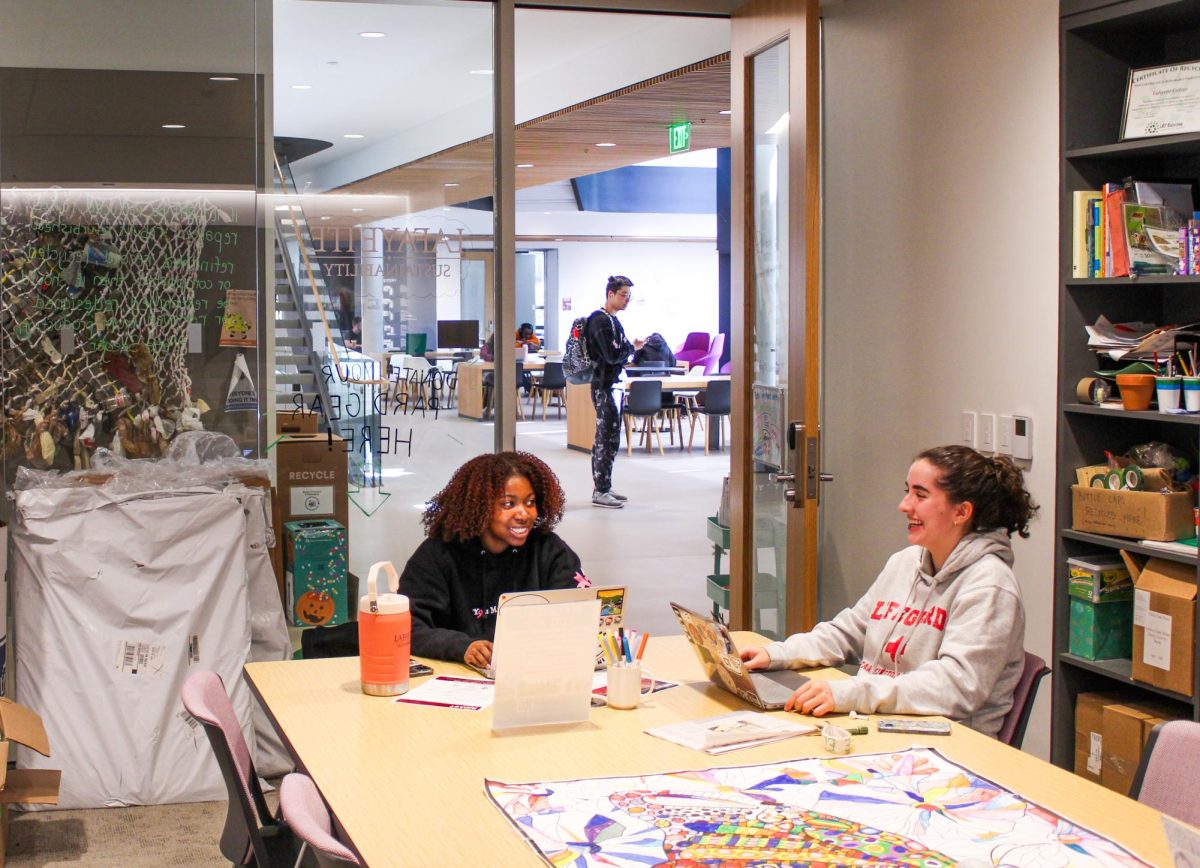Composting has returned to dining facilities around campus, and with it comes new composting interns in the Office of Sustainability. The reintegration of composting on campus was a much-anticipated change, the implementation of which has garnered a mixed reaction from students and faculty alike.
The new composting program, unlike the previous one that ended three years ago, is primarily run by student workers in the Office of Sustainability who handle the collection and transportation of the items.
Erica Albertson ’24 is one of 10 compost interns for the college. Albertson and her fellow interns drive to the main dining halls in the Office of Sustainability’s vehicles and transport the compost material down to the Bushkill parking lot where the composting vessel is located. This job is rotated through the interns every few weeks.
Sustainability outreach and engagement manager Samantha Smith discussed how a network of dining staff and composting staff work to transport food waste from student plates to the composting vessel Monday through Friday. The process is fairly arduous, as it requires students and staff to “weigh and check the food waste for contaminants.”
Albertson noted that, in the process, the composting crew often finds silverware and plastic that they need to manually remove. After all of this work is completed, LaFarm is the final location for the waste.
“The end product is given to LaFarm to use as fertilizer,” Albertson said. “[The Office of Sustainability] is hoping to distribute it to other community partners when we have more than LaFarm can use.”
Director of Sustainability Delicia Nahman said that it was not surprising that there was some confusion regarding composting in the dining halls, as most current students were not on campus when the system was last in use. Compost interns are supposed to step in and clarify new composting information with confused students.
“With the previous dining service provider, they did everything in the kitchen,” Nahman said. The current process requires students to use the compost buckets themselves.
Additionally, compost interns have also created signs that will clarify the composting process for students in the dining halls. Nahman and Smith expect dining staff to begin using this signage in the near future.
The composting program contributes to the office’s goal of creating a sustainable food loop by minimizing waste.
“We also very much look to our campus community for what are the topics that are most important to them,” Nahman said.



















































































































